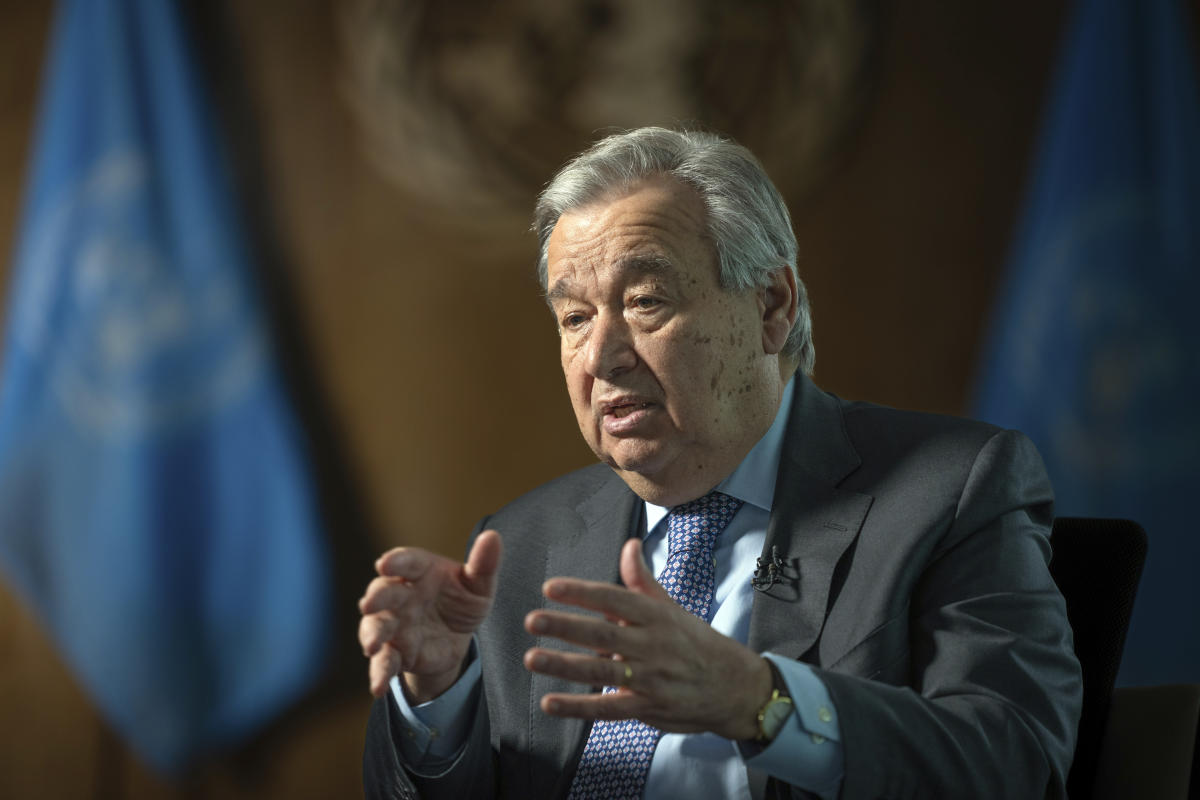
BERLIN (AP) — The head of the United Nations announced the appointment Thursday of an expert panel led by Canada’s former environment minister to scrutinize whether companies’ efforts to curb climate change are credible or mere “ greenwashing.”
Recent years have seen an explosion of pledges by businesses — including oil companies — to reduce their greenhouse gas emissions to “net zero” amid consumer expectations that corporations bear part of the burden of cutting pollution. But environmental campaigners say many such plans are at best unclear, at worst designed to make companies look good when actually they are fueling global warming.
“Governments have the lion’s share of responsibility to achieve net-zero emissions by mid-century,” U.N. Secretary-General Antonio Guterres said, adding that this was particularly true for the Group of 20 major emerging and industrialized economies that account for 80% of greenhouse gas emissions.
“But we also urgently need every business, investor, city, state and region to walk the talk on their net-zero promises,” he said.
The 16-member panel will make recommendations before the end of the year on the standards and definitions for setting net-zero targets, how to measure and verify progress, and ways to translate that into international and national regulations.
In addition to examining net-zero pledges by the private sector, it will also scrutinize commitments made by local and regional governments that don’t report directly to the U.N.
The panel includes prominent Australian climate scientist Bill Hare, South Africa-based sustainable finance expert Malango Mughogho and the former long-time governor of the People’s Bank of China, Zhou Xiaochuan.
It will be chaired by Catherine McKenna, who was Canada’s minister of environment and climate change from 2015 to 2019.
A recent report by the U.N.’s Intergovernmental Panel on Climate Change found that more than three billion people worldwide are already at risk from global warming.
The panel will publish another report next week which is expected to confirm that the world is not on track to meet the goal of capping temperature rise at 1.5 degrees Celsius (2.7 Fahrenheit) by the end of the century, which was laid down in the 2015 Paris climate accord.
“If we don’t see significant and sustained emissions reductions this decade, the window of opportunity to keep 1.5 alive will be closed — forever,” said Guterres. “And that will be disaster for everyone.”
___
Follow AP’s coverage of climate change at https://apnews.com/hub/climate




